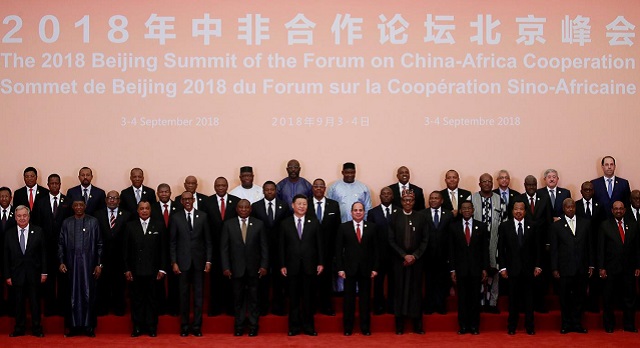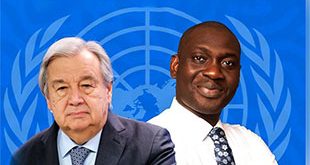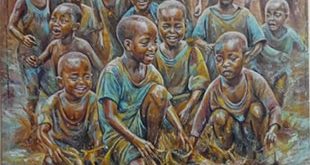
What Africa and Uganda got from Beijing
Kampala, Uganda | RONALD MUSOKE | President Yoweri Museveni was among the 35African heads of state who flew out to Beijing in early September to attend what is fast becoming a Chinese jamboree where easy-looking deals are quickly sealed every three years.
The 2018 Forum on China-Africa Cooperation edition, the seventh since the turn of the millennium, was themed: “China and Africa: Toward an even stronger Community with a shared Future through Win-Win Cooperation”. United Nations Secretary General Antonio Gutterres attended together with 27 international and African groups as observers.
Although the twin issues of a growing trade imbalance and the sustainability of Africa’s debt to China were hot topics going into the Forum, it remained at the back of every participant’s mind.
Many African countries are gulping loans from China without considering whether the projects they invest will generate enough economic return to match the debt servicing requirement.
As a result, critics; especially from the West, routinely accuse China of “debt trap diplomacy” –intentionally miring “partners,” particularly developing countries, in unsustainable debt-based relations. The assumption seems to be that “China’s own economic and geo-strategic interests are maximized when its lending partners are in distress.”
From debt to aid
At the summit, however, African leaders queued up to praise China’s President Xi. Uganda’s Yoweri Museveni was not among the big winners from the meeting.
He only signed three agreements; one on economic and technical cooperation, another on emergency humanitarian assistance, and the general memorandum of understanding on cooperation within the framework of the Silk Road Economic Belt and the 21st Century Maritime Silk Road Initiative. All were worth just 270 million Yuan (about Shs150 billion).
So he, instead, thanked President Xi for what China has done for Uganda in the past; the construction of the two biggest dams; the 600MW Karuma Hydropower plant and the 183MW Isimba Hydropower plant, and the expansion of Uganda’s most modern highway; the Kampala-Entebbe Expressway, which is the country’s gateway to the world, as well as the expansion of Entebbe Airport, and financing and construction of the proposed Standard Gauge Railway project.
Back home, however, senior Ugandan officials followed Museveni’s cue. They kept the focus on what Uganda has already benefited from 10 cooperation plans announced by President Xi during the FOCAC Johannesburg Summit in December, 2015.
These covered key areas of industrialization, agricultural modernization, infrastructure, financial services, green development, trade and investment facilitation, poverty reduction and public welfare, public health, people exchanges, and peace and security.
Uganda’s flat package reflected the trend at this year’s summit. China maintained the general package at US$60 billion; the same as last time.
But the cake was baked to different specifications and cut differently this time. The biggest slice of US$35 billion went to preferential loans and export credit lines, US$5 billion to grants, US$15 billion to capital for the China-Africa Development Fund, and US$5 billion to loans for the development of African small and medium enterprises.
Keen watchers like Deborah Brautigam who researches on the China-Africa partnership noted that the Chinese government actually put up $50 billion — $10 billion less than pledged in 2015, at the previous FOCAC summit. According to the plan, the $10 billion difference will come from private Chinese investments.
China, however, is giving more money to Africa this time via grants or interest-free loans. It is also cutting down on interest-bearing credit lines.
Of the Chinese government money, $20 billion is new loans. Brautigam notes that this marks a decrease in interest-bearing loans offered to Africa relative to 2015.
Meanwhile foreign aid (“grants, interest-free loans, and concessional loans”) comes in at “$5 billion per year, the highest level ever offered to Africa from China. It comprises $15 billion in foreign aid, plus an additional $15 billion in two “special funds.”
Observers say it is no coincidence that the shift from debt to aid is occurring alongside global debates over the merits (and demerits) of Chinese debt, with some critics accusing Beijing of engineering “debt traps” for developing countries by offering loans that will be impossible to repay.
China’s Five Nos
The host Xi, however, preferred to re-affirm China’s commitment to a “win-win partnership” between China and African countries.
“China values sincerity and trust in pursuit of partnership cooperation,” he said, “It has neither attachment to its strength in the continent nor does it seek any gains.”
He reminded his guests that China had fulfilled pledges it made during the second FOCAC summit held in 2015 in Johannesburg.
This time, he unveiled eight not 10 major initiatives for future China-Africa cooperation: industrial promotion, infrastructure connectivity, trade facilitation, green development, capacity building, health care, people-to-people exchanges, and peace and security. Out flew agriculture modernization, financial services, poverty reduction, and public welfare from 2015. In came capacity building. President Xi also included a pledge to work with African countries to mitigate effects of climate change.
Xi also pledged that China would follow the “Five Nos” in its Africa policy. These include: No interference in African countries’ pursuit of development paths that fit their national conditions; no interference in African countries’ internal affairs; no imposition of Chinese will on African countries; no attachment of political strings to assistance to Africa; and no seeking of selfish political gains in investment and financing cooperation with Africa.
China has always maintained that its model of engagement with Africa is “win-win” cooperation between equals – members of the global “South” and developing countries. That message is at the heart of Beijing’s policy of “non-interference” policy, which China contrasts with the “strings” attached (usually requiring political reform) to Western aid.
Yet, although China has been Africa’s largest trade partner over the last decade, there remains a marked imbalance in trade with 40 African countries. Going to China are unprocessed products while in the opposite direction China sends manufactured cheap goods.
For Uganda, for example, the ratio of imports to exports with China is a whopping 22:1. For Nigeria, every US dollar of exports to China, it imports US$ 11.
In response, the Chinese government offered four new ideas set out in President Xi’s speech during the forum.
For example, China intends to use e-commerce to promote African products; it also intends to create a China-Africa Economic Trade Expo. It also intends to help African countries participate in the China International Import Expo in November, 2018 in Shanghai. The poorest African countries will not have to pay exhibition stand fees to take part. These are opportunities for regular marketing activities for African products.
Second, the Chinese governments offered 50 trade facilitation programmes for Africa—that is close to one per country—and thereby increase cooperation on market regulation and customs procedures. Third, the Chinese government offered to create a new US$ 5 billion fund for financing imports from Africa.
China also committed to continue holding free trade negotiations with interested parties which could expand the duty—free access that it already gives to 97% of products from the so-called Least Developed Countries in Africa.
The long-term view
Commenting about the growing China-Africa partnership, South African President Cyril Ramaphosa who was also the co-chairperson of the session said FOCAC refutes the misconception by some quarters that it is a new form of colonialism in Africa pointing out that the Forum is on the contrary beneficial to the people of China and Africa.
‘It is a vision of an integrated prosperous and peaceful Africa, we welcome the announcement by FOCAC initiatives that will have positive and everlasting impact to the people of Africa,’ he observed.
The President of Rwanda and the current AU chairman Paul Kagame noted that FOCAC has grown into an engine of meaningful cooperation between Africa and China. He saluted President Xi-Jinping for his personal engagement in these efforts.
‘We now want to scale up and strengthen the Forum to maximise mutual benefits,’ the Rwandan leader said.
The Secretary General of the United Nations Antonio Gutterres praised China for pursuing the path that will immensely contribute to the well-being of human kind.
It is a view held by Ramathan Goobi, a lecturer of economics in Kampala. He told The Independent last month, the Uganda-China partnership requires a long term view since the Chinese are here to stay.
“Uganda should do exactly what the Chinese did 30 years ago,” Goobi said, “The Chinese structured their partnership with the Europeans and Americans in such a way that it was strong on local content and technology transfer.”
 The Independent Uganda: You get the Truth we Pay the Price
The Independent Uganda: You get the Truth we Pay the Price




